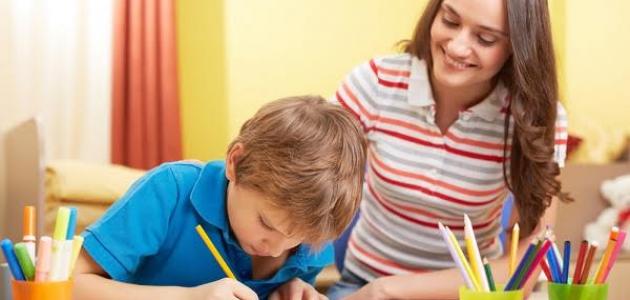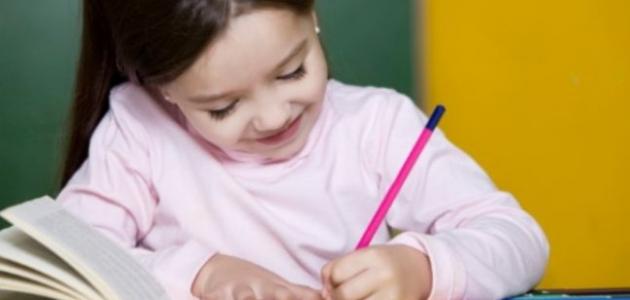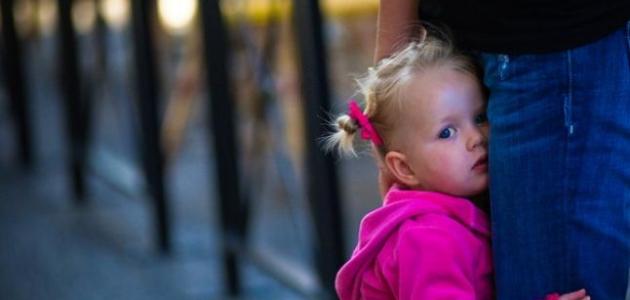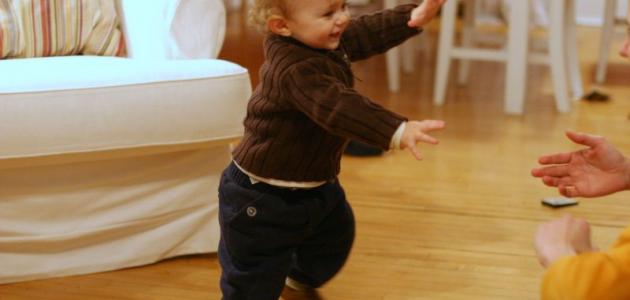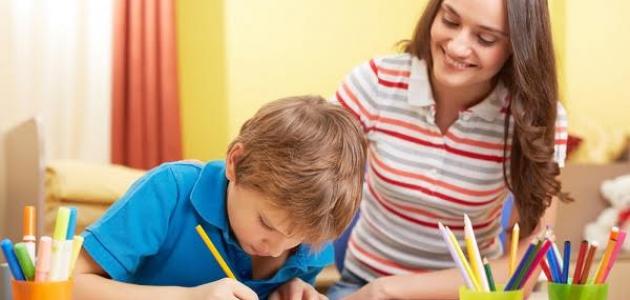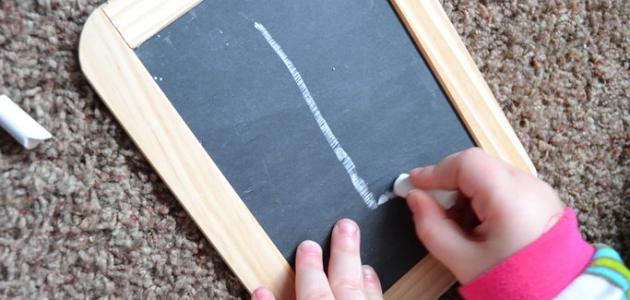Lying behavior in children
Lying is the opposite of honesty, as it describes a specific thing or situation contrary to what is happening in reality; Either partially or completely, it is a distortion of facts to achieve a material, social or psychological goal. As for lying in children, it is an acquired behavior from the surrounding environment, such as the family. A child may lie by modeling (by noticing a lie or exaggeration by one of his children in narrating an incident) and he thinks that it is normal behavior, or parents exaggerate in urging their children to be honest and monitor all their actions and hold them severely accountable for every small and large in a strict manner; Which reflects this on the child's psyche, and sometimes results in an opposite reaction, and there are also occasional psychological reasons such as self-affirmation or drawing attention, and these quickly disappear with successive stages of growth and the extent of completion of mental maturity, in addition to the role of friends and school either by consolidating and belittling lying and its harms, or denying it. And alienation from it.
What are the types of lying?
The types of children’s use of lying vary according to the situations and the causes to which they are exposed, and thus its types are divided into the following:
- Imaginary lyingThis type of lying appears in children who have fertile imagination, fluency in the tongue, and rapid development of linguistic abilities, and thus the ability to express and penetrate imaginary stories and events that are not possible and unrealistic. He made up his own ideas.
- Confused lyingThere is some confusion in the child between reality and imagination. That is, it is possible for a child to hear a fairy tale and believe it, or a realistic story that he liked; So he owns its details and he lives with them in his imagination, and retells them with changing characters and some events, or he sees his dreams and believes that they are reality; He tells it to those around him, so this type of lying is linked to the mental abilities of the child, and it usually disappears with the child’s progress in his age and the development of mental maturity.
- Pretentious lying: The reason for the child's use of this lie may be for the purpose of drawing attention, low self-concept, low self-confidence, feelings of inferiority or improper family upbringing, poor living conditions, and feelings of inferiority or deprivation. Which leads the child to claim that he has many toys in his room, or that he goes on different trips; To appear in front of his friends that he is the best, and has a lot of things.
- Purposeful lying: The child resorts to lying to achieve what he wants while the authority opposes that, so he lies and deceives to obtain his purpose; He may ask for money to buy what he needs for school (while he goes to buy sweets), or he goes to study with one of his friends (and he actually goes to play a game or an activity). with it.
- vengeful lyingIt often appears due to jealousy and a sense of injustice, and it arises as a reflexive reaction to the child’s observation of the discrimination between one of the parents or one of the family members between the children in general, or by the teachers distinguishing the children from each other in the school environment. Vengeful lying is a sanctuary in such cases. to harm the discriminatory of siblings or peers; Where it is considered as a kind of recovery of the right, or an achievement of justice as seen by the child, or revenge for the lack of equal opportunities.
- Preventive lyingThe child resorts to lying if he fears punishment or reprimand. Especially if the severity of the punishment is not commensurate with what the situation requires, so the child lies to defend and protect himself, and appears clearly when the authority is harsh, and the punishment is imposed without understanding its circumstances and causes.
- Tradition liedThe child realizes the legitimacy of lying by imitating the adults around him. Where this type appears when the parents use lying methods, so the child imitates the behavior of his parents, whether they are good or bad, for example when someone comes to visit the father, the father asks the mother to tell the visitor that the father is not in the house, so the child watches and watches and realizes what is happening without the intention of the parents Acquiring this behavior, and therefore lying is a way to get rid of problems.
- pathological lyingIt occurs when lying is a chronic habit in a child. It becomes one of his personal characteristics, and it is a result of the failure to treat lying as a temporary behavioral phenomenon in the event that it occurs, and the use of appropriate educational methods that deter the child from it. Thus, it becomes a satisfactory phenomenon that accompanies its owner without his realizing it, and in a way that is beyond his control.
Ways and means of treating lying in children
Lying is a social scourge that robs love and trust, and reflects suspicion and suspicion towards a person known to be a liar. It is the duty of parents and educators to control lying with remedial methods appropriate to the nature of the situation as soon as it is noticed and appears. In order not to spread and aggravate and accompany the child in the stages of his maturity; It becomes one of its well-known features, and there are many educational and therapeutic methods to avoid the problem of lying in children, including:
Read also:How do I make my son obey me?- The family must be a source for the proper upbringing of the child. Surrounding the child with a good environment creates a good example that is believed in its words, promises and actions, in addition to cultivating psychological safety and stability, and avoiding anxiety. A psychologically stable child does not feel the need to lie, and a frightened child always resorts to it.
- Teaching the child the virtue of honesty, and encouraging him to do so by mentioning a verse of poetry, or a story that shows the reward for the truthful and the penalty for the liar, in addition to using reinforcement towards him in case he says the truth and avoiding using lies.
- Imposing a balanced punishment in the event that the child does not tell the truth or denies it, with an explanation of the reasons for the punishment inflicted on him, and in return not punishing him for telling the truth and forgiving him; To plant the love of honesty and security in itself.
- Avoiding discrimination in treatment between children, and justice and equality between them.
- Enhancing the child's self-confidence, stimulating his positive attitudes towards himself, and avoiding stimuli and emotions that cause fear and panic in the child.
- Balance in assigning tasks and taking into account the mental and physical abilities of the child; So that he does not have to seek help from anyone and lie about the percentage of achievement for himself.
- Slow down accusing the child of lying before making sure; So that the adjective does not continue to be heard, in addition to preserving the educator's credibility.


